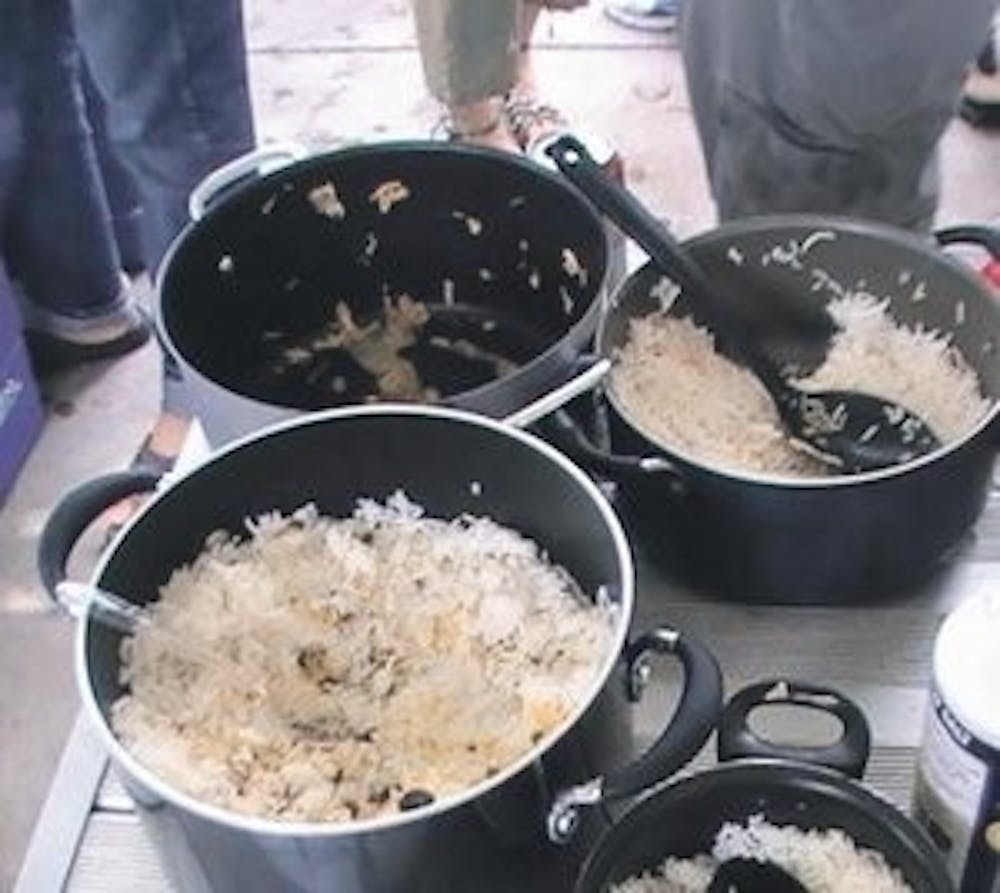Food, fun and fellowship welcomed more than 70 people of different cultures and academic standing to the Iranian Student Association's Iranian-American Friendship Barbecue Sept. 8.
The barbecue at Martin Luther King Park was an attempt of the IRSA to seek new members of differing backgrounds and become more actively involved in the Auburn community.
President and graduate student in chemistry Dana Lashley said the IRSA was founded to help Iranian students find each other in Auburn and help each other adjust to living in the U.S.A.
"When I first got to Auburn, I had no idea that there were any other Iranians in the area," Lashley said. "But then we found each other and it kind of grew to be a family."
Originally composed of graduate students, the IRSA is now seeking to broaden its membership to all students and residents, regardless of political or religious affiliations.
"Originally, all the events were private because we weren't an official organization," Lashley said. "Now we want to invite American students and our other friends to be a part of IRSA."
From 1 to 6 p.m. Iranian pop music accompanied food, which included traditional Iranian dishes such as joje kebab (chicken kebab), mast khiar (yogurt sauce with cucumbers, spices and green onions), polo (white rice) and zereshk polo with morgh (rice with sour berries, saffron, spices and chicken).
The "barbecue" of Iranian cuisine is typically chicken, instead of pork, that has been marinated for three days and served with a variety of rices and sauces.
Most attendees learned about the barbecue through IRSA's Facebook page or This Week @ AU, including Moroccan graduate student in architecture Asmaa Benbaba.
"I found the event through Facebook, and I now plan on going to the other events this semester," Benbaba said. "I like the (Iranian) culture, especially the music ... anything that is a mix of cultures and diverse is interesting to me."
Secretary and graduate student in physics Vahid Mirkhani, who led the IRSA's O-Days table to recruit new members, explained the premise behind expanding IRSA.
"Americans and Iranians don't know each other because of the political issues that we have," Mirkhani said. "The IRSA is not politically or religiously oriented towards anything. We're trying to introduce our culture and people to Americans and others. We're a friendly people and we're trying to show it."
Mirkhani said Iran is similar to the U.S. in that it is a multicultural country, with residents who speak Arabic, Turkish, Farsi and Urdu, among other languages.
Matthew Bennett, sophomore in business, said IRSA's enthusiastic table at O-Days is what persuaded him to join IRSA and attend the barbecue.
"The great thing about this (barbecue) is that it's a cultural rift, in a way," Bennett said. "This isn't what you see in the news: these are real, fun, down-to-earth people who are getting an education just like us at Auburn."
The IRSA has more planned for this semester. First, it will host Michael Kozuh of the history department, who will give a speech titled "The Behistun Monument in Kermanshah and Early Persian History."
IRSA will also celebrate Yalda Night on Dec. 21, a Persian Winter Solstice celebration that dates back to ancient Persia.
Do you like this story? The Plainsman doesn't accept money from tuition or student fees, and we don't charge a subscription fee. But you can donate to support The Plainsman.




